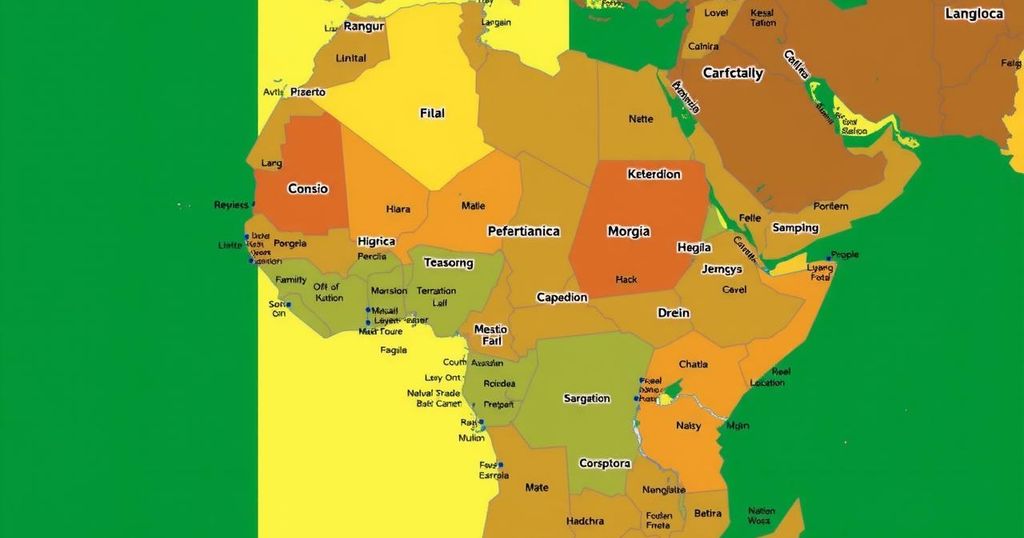Climate Impact and Security Challenges in the Central African Republic

The Climate, Peace and Security Fact Sheet for the Central African Republic discusses the country’s significant exposure to climate change and its socioecological vulnerabilities amidst ongoing insecurity. The report highlights tensions among armed factions and pastoralists exacerbated by regional conflicts and recommends actions for the international community to address these intertwined issues effectively.
The Climate, Peace and Security Fact Sheet for the Central African Republic (CAR) outlines a complex interplay between climatic challenges and security concerns facing the nation. As one of the countries heavily impacted by climate change, CAR’s vulnerabilities stem from a lack of robust state authority, mismanagement of natural resources, and limited resilience at both household and community levels. Despite some improvement in the security landscape in recent years, instability persists, characterized by frequent clashes among various factions such as the Coalition of Patriots for Change (CPC), self-defense groups, and criminal elements including bandits, in rural regions. Furthermore, the deteriorating conditions in the Sahel and the Great Lakes regions have compelled transhumant pastoralists to migrate into the CAR earlier than usual, raising tensions over resources. The residual consequences of ongoing conflicts in neighboring Sudan exacerbate the humanitarian situation, particularly impacting the Vakaga and Haute-Kotto prefectures.
The Central African Republic is situated in a region severely affected by the dual challenges of climate change and ongoing insecurity. The CAR faces significant socioecological vulnerabilities due to ineffective governance and resource management, which hinder community and household resilience. Although there have been steps towards stabilization, violent confrontations among armed groups remain common, putting additional strain on an already fragile security environment. Moreover, geopolitical issues, notably the instability in the Sahel and the effects of the Sudan conflict, further complicate the humanitarian landscape in CAR, presenting urgent challenges to local and international stakeholders seeking to stabilize the region and promote sustainable development.
In summary, the Central African Republic stands at a critical juncture where climate change exacerbates existing security challenges, necessitating a coordinated response from the international community. Addressing these vulnerabilities through sustainable resource management, conflict resolution, and humanitarian aid is essential to foster stability in the nation. Without comprehensive interventions, the recurring cycles of violence and environmental degradation are likely to continue to undermine peace efforts and hinder development in CAR.
Original Source: reliefweb.int






